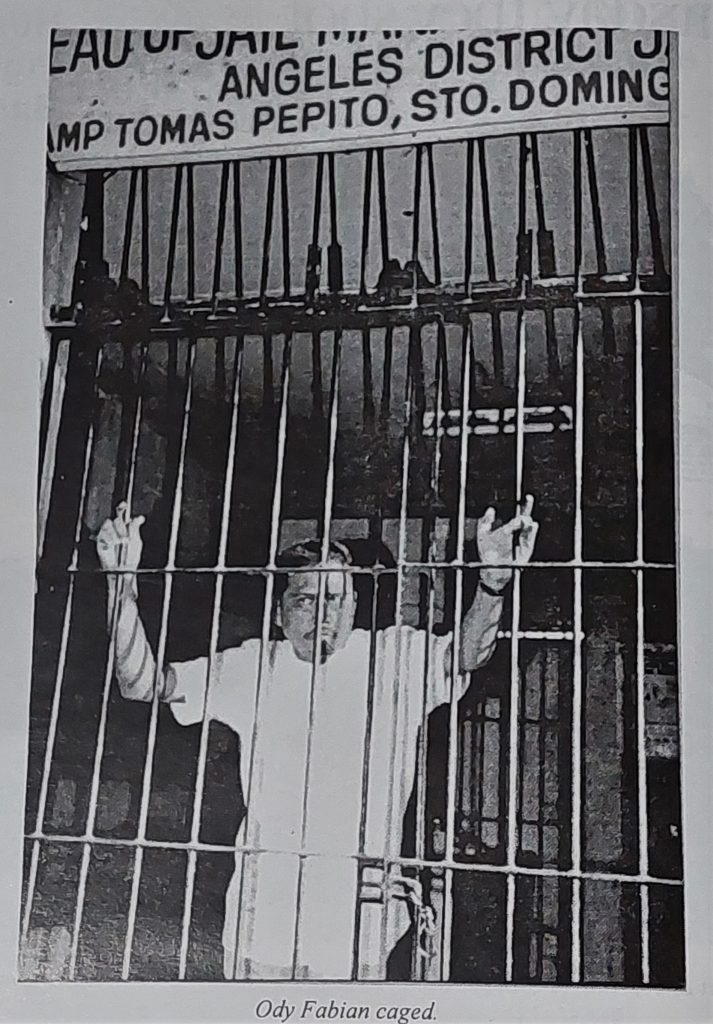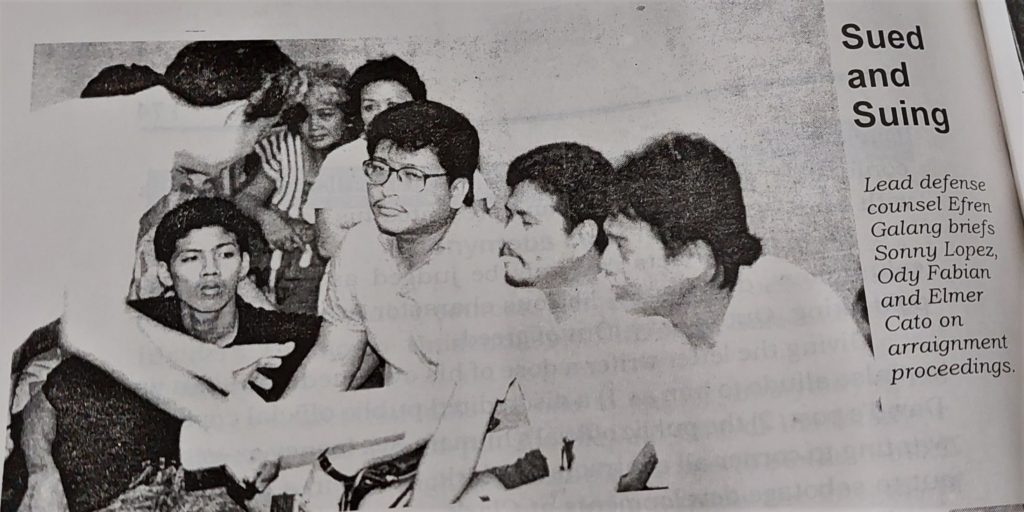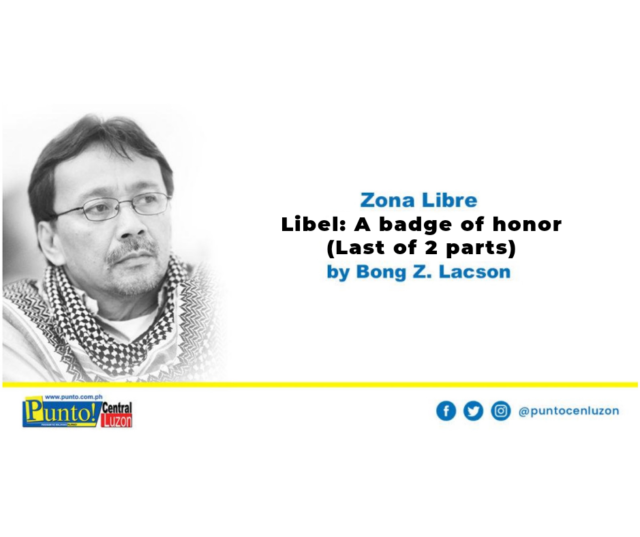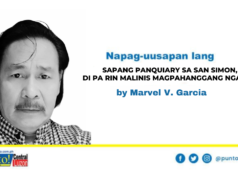INDEED, THERE was this somewhat perverted sense Pampanga journalists held then – a number of us still holds to this day – of libel cases as badges of honor, aye, journalism’s very version of the Medal of Valor, to be worn and displayed with pride. So, the more libel complaints, the more effective, if not better, the journalist.

So it was with Ody Fabian (+) of The Voice who landed himself at the Angeles City Jail over a libel complaint from the Angeles University Foundation Medical Center, and cleared of a P25-million case from a mayor, among others.

So it was with Sonny Lopez (+) and Elmer Cato of the Angeles Sun, hauled to the fiscal’s office by then Angeles City Mayor Antonio Abad Santos (+) over exposes on corruption in the city government, and subsequently cleared of libel.
So it was with Ashley Jay Manabat of Sun-Star Clark, tagged in a ridiculous P500-million suit over articles repudiating the doubly ridiculous claims of someone owning the Clark special ecozone along with practically the whole of Luzon.
So it was with Jerry Lacuarta (+) of Manila Bulletin, haled to court by a US Navy man nabbed for international drug trafficking – of a “considerable amount of high-grade heroin stuffed inside imported tuna” coursed through the Subic port. The conviction of the American sailor ended the libel case.
So it was with Lacuarta again, with Fred Roxas (+) of the Philippine News Agency and Ding Cervantes of Philippine Star, earning a P20-million libel suit over their reportage of alleged anomalies and incompetence in the construction of the FVR Megadike system. The complaint failed to go beyond the prosecutor’s office.
So it was with Rizal Policarpio (+) of Balita who, until 1999, held the distinction of being the only member of the Pampanga media to have gone the whole legal course of libel – filed by a town assessor implicated in the murder of three men – and acquitted for absence of malice.
So it was with the venerable Toy Soto (+) of Times Journal, who in his senior year was hit by what he evaded through his decades of journalism practice – a libel suit from Angeles City traders inferred ina report of the Clark Development Corp. as alleged smugglers. Dismissed at the prosecutor’s office, nonetheless.
So it was with Arnel San Pedro of Manila Times, charged over his exposes of allegedly anomalous transactions in a government rehab center; acquitted after a decade of trial.
So it was with me.
As much a vindication – of the correctness of the story, politically and factually – as a resolute re-commitment to the ethics of journalism is every dismissal of libel. So many libel cases we have been subjected to that the Pampanga Press Club, founded in 1949, is now a proud keeper of a Libel Tradition.
Shields
Two basic elements in journalism we have experienced as strong shields against libel: accuracy and fairness.
Precise as precise can be in the facts obtaining in one’s story. While truth is not always a defense in libel, inaccuracies make falsities that open the respondent to utter defenselessness.
Fairness is the antidote to malice – the usually most damning of libel’s four requisites. Evil intent or ill will on the part of the writer will be more difficult to establish in a story that presents all sides fairly.
Be truthful. Be accurate. Be fair. That’s what all the editors I worked with told me on my way up in the pecking order of the Fourth Estate.
I have upheld – did my best to, every which way I wrote – all three. Still, I’ve had my share of libel suits. And I’ve been lucky. Emerging unscathed, and rather stronger, from them.
Even as I joined the voices raised against online libel in the Cybercrime Law, mainly for the harsh punitive provisions, I have this fear over the decriminalization of libel. At the Senate deliberations on the then Cybercrime Prevention Bill, I was in awe of the honourable senators – Miriam Defensor-Santiago, Ferdinand Marcos Jr., Alan Peter Cayetano, Francis Escudero, Edgardo Angara and Teofisto Guingona III – moving toward that direction.
However, I stand with Sen. Koko Pimentel in his cautionary plea to his peers on decriminalizing libel.
“It’s a redress for grievance. If you’re libeled, you can file a complaint, and if the fiscal tells you no libel was committed, at least you feel you tried the remedy, and the potential penalty—since it’s a jail term—is sufficient enough to deter indiscriminate libeling of people,’’ rationalized Pimentel.
“If we decriminalize it, more people would feel they’re victims of injustice because they’ve been libeled, and they don’t have a remedy. We don’t want people to take the law into their hands because of inefficient justice system.’’
Inefficient justice system. That’s one operative phrase that has not really factored in amid all the noise rising from the Supreme Court’s declaration of the constitutionality of the Cybercrime Law.
Given the Maguindanao Massacre and other media killings even with libel laws extant, it will most certainly get even worse with libel decriminalized.
And the culture of impunity will get the nation in an even tighter grip.
Yeah, I would rather face summons from the prosecutor’s office than look straight into the barrel of a .45. I have been through that too.
No mere chilling effect but a polar vortex there.





